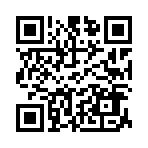Over the years I’ve been using Twitter, blogging and other social media I’ve noticed the reticence of some users, particularly from public bodies such as police, central government and arms-length government organizations to take part in a conversation. Locally, in York, I follow the police who both maintain a dialogue and make Tweets interesting to followers by adding humour (where appropriate), safety and security advice, along with road closure warnings. In contrast very recently, being unable to find a way to complain to Greater Manchester Police I tweeted my complaint with a strong hint of sarcasm, I obviously failed miserably when a day later @GMPolice made a favourite of it!
This similar approach has been used on the regional offices of central government failing similarly when they don’t even respond. I’ve got so use to the local council not responding to Tweets or emails that I now just don’t expect it. In contrast, some councillors (but not many) willingly maintain a dialogue or move it to email, whilst others might as well not bother having a Twitter account. I notice that a number of bodies such as the Environment Agency are encouraging managers to have Twitter accounts on their behalf, whilst the same individuals do not have a publicly available email account. I take this as a symptom of the risk aversive nature of such bodies, when they don’t want individuals appearing to speak for a ‘department’. The same people are, by large, also averse to holding a dialogue in Twitter but happily tell us the details of their day-to-day work (yawn).
A lot of this I take to being the absence of a good policy and training. If bodies are going to get themselves involved in social media they need to accept complaints and compliments by it, as well as posting interesting stuff, but less of the day-to-day drivel, please!



 Posted by greatemancipator
Posted by greatemancipator 
